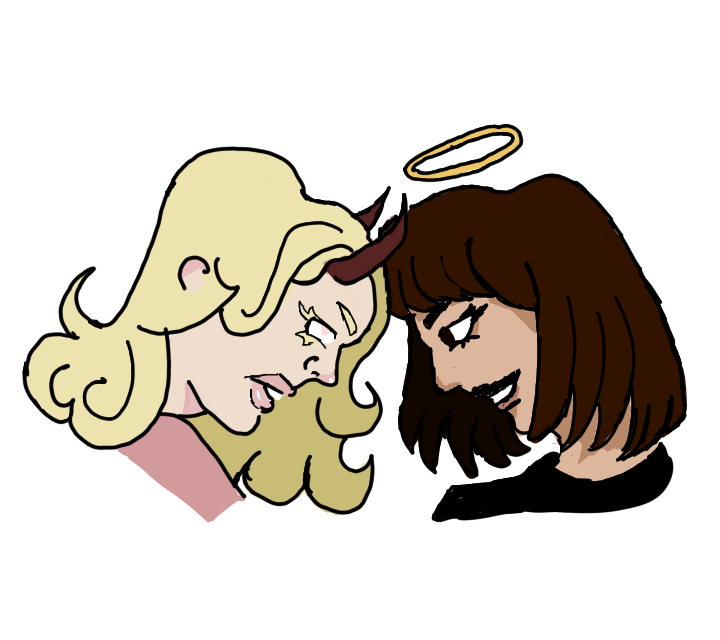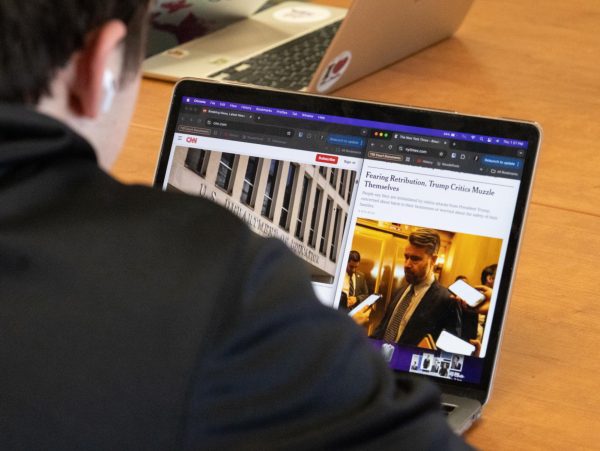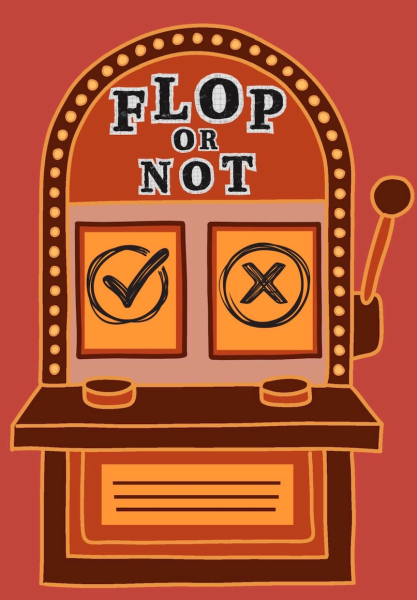You’re Such a Doll
What’s so wrong with being Barbie?
Photo: Mayyadah Alzaben
Sometimes it feels impossible to be a girl.
There’s been this huge push for high school students’ lives to incorporate the perfect “quirky girl,” often either a tomboy or a manic pixie dream girl, the offbeat fever dream of a human being who saves the male protagonist. That’s great — diversity is always a win — but this comes at the expense of feminine expression.
I’m not at all saying that all protagonists should or even could be “girly girls,” but it seems that popular culture has swung all the way to the side of demonizing not only the surface layers of pink and blonde that have for so long been the standard that women have been ushered into, but to the point where it just seems like pushing patriarchal masculine values onto everyone.
It’s just hard to find a girly protagonist — hyper-feminine women are made to be villains while their male counterparts are often the targets of ridicule. This isn’t a push for the restoration of gender roles, it’s just asking not to feel bad about something as trivial as liking pink.
The iconic movie Mean Girls is a great example of the demonization of femininity: Cady Heron, a tomboy, is abused and corrupted by Regina George and her Plastics, the popular girls in miniskirts and high heels. They’re depicted as airheaded and conceited throughout the movie, constantly looking for opportunities to stab others in the back.
The only way for Cady and eventually even Regina to break free is by doing more typically masculine activities; for Cady, this is just reverting back to her previous self while Regina is “fixed” by taking out her anger through physical aggression in a fashion typically associated with men.
Another incredibly influential Hollywood star that played into these stereotypes is Marilyn Monroe, the archetypal ditsy blonde. The beautiful, conceited, and generally clueless girl was Monroe’s signature role. This is rather ridiculous, considering she was an incredibly talented actress outside of the one-dimensional characters she was typecast as.
Diario AS reported that she had an IQ above 160 and had a collection of over 400 books on subjects ranging from poetry to psychology. So why is she only really remembered as a tragic, flighty beauty who met an unfortunate end?
Because she was a dumb blonde, of course.
Popular media pushes a number of harmful stereotypes — if you’re girly, you can’t be intelligent; something many characters and real people alike ultimately fall prey to. There are others, too. Femininity means being shallow and petty, while masculinity embodies straightforwardness and authenticity. Effeminate men and women alike are mocked for their interests, their looks and really anything that doesn’t fit the modern “manly” mold, yet they’re somehow still expected to be pretty and fun and available.
It’s a double standard. We’re supposed to be flawless but not care; if we take interest in our appearance we’re self-absorbed and trying too hard. We should be able to handle ourselves but also let men take the helm when things get serious. We can only be smart if we’re not attractive because having two powerful traits is too much for the world to handle.
I want to see a protagonist who can be hyper-feminine and hyper-intelligent without going under a “you’re so beautiful without your glasses” transformation or anything else of the sort. I want a strong female lead who isn’t emotionally constipated. I want to see more than stereotypes and put-downs.
We need another Elle Woods. She — although some may disagree that a chick flick can go that deep — represents a girl who can be both smart and girly. Her narrative foil, Vivian, is incredibly intelligent and far more serious; she looks down on Elle for being ditsy and over-the-top. Over the course of the movie, both girls develop as people without having to change the essence of their being. In the end it’s about girl power, which sounds cheesy, but we’re in dire need of it in our modern culture.
Having met so many amazing women in my own life, I have to wonder: when did femininity become equated with a lack of substance? Why must we all be Lorelei Lee in Gentlemen Prefer Blondes and not Barbie with her thousands of jobs and awesome Malibu mansion? Why are hyper-feminine girls depicted in a negative light both in popular culture and our ideas of each other?
And most importantly, why are women attacking each other over it?
Media both reflects and influences our culture; it has led to the rise of “pick me” girls who shirk typical femininity to the point of attacking girls who wear makeup or don’t watch sports. Their only goal seems to be tearing down others to make themselves look better or more relatable to their male counterparts.
Ultimately, pick-me girls exist in a state of internalized misogyny, constantly searching for male validation and attention. They’ve found a niche in the social system where they can save themselves from abuse and ridicule by joining the bullies. It’s the old saying — if you can’t beat them, join them.
We’ve all heard it: “girls are too dramatic. That’s why I only hang out with guys.”
“You wear makeup? I could never. I’m not fake like that. Josh. Josh. Isn’t she wearing so much makeup?”
“I’m not like other girls. I’m one of the boys!”
The problem isn’t avoiding makeup or pink or skirts, it isn’t liking video games or wanting to wear pants or any other harmless behavior. It’s the putting-down of women for doing things they enjoy, especially to impress men who already make jabs at them regardless.
It’s perfectly fine to make any personal choice that’s not actively harming others. The issue comes when girls lay into each other over artificial constructs that shouldn’t matter as much as they do. We shouldn’t be living in a social war zone based on what clothes we wear or whether or not we put on mascara in the morning. No one gets “picked” when we tear each other down — we all just get hurt.
It’s not like people aren’t calling this out, but it seems to go from righteous to harmful — popular TikTok trends that at first called out toxic behavior morphed into another way to make fun of women over benign activities. Some things, such as wearing a knee brace, were weaponized as “attention seeking behavior” and used as a put-down for oftentimes legitimate issues.
Nothing seems to work.
Every attempt to push back against the patriarchy is met by ridicule and perversion. The conversation switched from girls who bring up their friends’ insecurities to look better in front of men they want to impress to making jabs over trivial, mostly uncontrollable things like what letter someone’s name starts with.
How long will we live under these outdated, ridiculous standards? Women are not a monolith — the point is not to try to make us all hyper-feminine or tomboys, but to show that we have more than two settings and neither are inherently cruel or shallow. I don’t fall neatly into either category and I doubt many people do. We don’t have to.
Femininity, just like nearly every other human trait, falls on a spectrum. Just as someone’s eyes can be a mix of brown and green, so too can how a person chooses to present themself. Being a typical girly-girl on the outside does not mandate a lack of substance beneath our most superficial layers.
We aren’t dolls with a few catchphrases when you press a button, we’re complex humans. Wearing makeup or preferring to wear skirts does not determine your whole personality.
Gender stereotypes are a way to divide women, but we are stronger together. By living your life regardless of societal pressures to conform to the “not-like-the-other-girls” (who actually all seem rather similar in their portrayals as well) monolith or the ditsy bubblegum girl group, you help to break the stereotype. Be a Barbie. Be an Elle. Be a Marilyn!
But at the end of the day, just be you.












